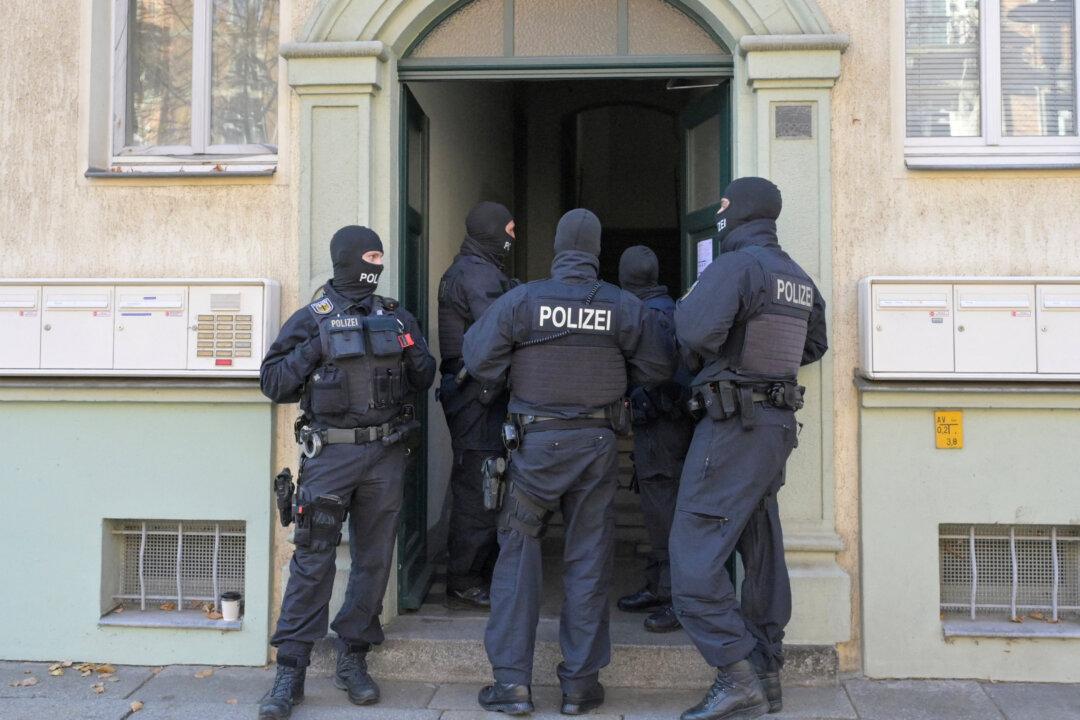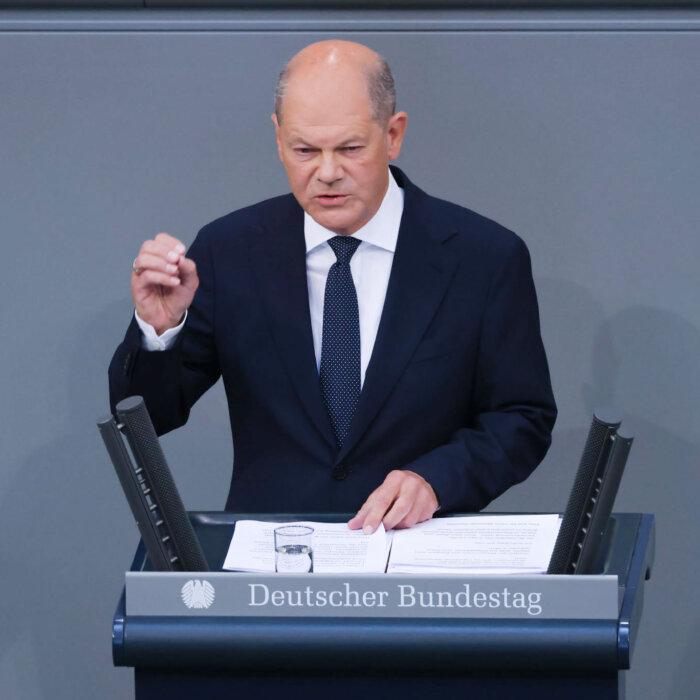The leaders of the Alternative for Germany (AfD) party are to expel members involved in an extremist group, the party said.
In a statement, the right-wing party referred to “members affected by the measures taken by the attorney general,” confirming a connection between the party and eight suspects arrested during a major police operation on Tuesday.
‘Day X’
The operation targeted the Saxonian Separatists [“Saechsische Separatisten”], a monarchist, autonomist, and secessionist movement that seeks to restore the former Kingdom of Saxony.“Our security authorities have thus thwarted at an early stage militant coup plans by right-wing terrorists, who were longing for a Day X to attack people and our state with armed force,” Interior Minister Nancy Faeser said in a statement.
According to German media, one of the suspects was Kurt Haettasch, an AfD politician in the eastern state of Saxony, where the party came close to winning a state election in September.
Describing it as an “urgent and serious case,” the AfD said it would also suspend their membership rights with immediate effect until the arbitration court reaches a decision.
“No matter on whose behalf the Saxonian Separatists have been operating, there is no place for them in our party of freedom, peace, and national sovereignty,” the AfD said.
Saxonian Separatists
According to Germany’s Office of the Attorney General, Saxonian Separatists is a militant group consisting of 15 to 20 people whose “ideology is characterized by racist, anti-Semitic, and partly apocalyptic ideas.”.
From the point of view of the association, there is no doubt that Germany is facing “collapse” and that the state and social collapse will occur on a “day X” that is still indefinite in time.
AfD
The AfD is currently second in the national polls at 16 percent.On Sept. 1, the party emerged as the dominant political force in recent state elections in eastern Germany, securing nearly 33 percent of the vote in Thuringia and almost 31 percent in Saxony.

The AfD has been labeled as a right-wing extremist by domestic intelligence agencies in some German states.
Domestic security services have treated the main AfD as a potentially extremist party since 2021, granting security services the right to keep it under surveillance. However, the party denies that it is extremist.
In both Saxony and Thuringia, the regional branches of the AfD are considered even more right-wing than the main party. Notably, its Young Alternative Thuringia was classified as a “right-wing extremist” in March.
Germany’s Federal Office for the Protection of the Constitution stated that the AfD and its representatives’ statements “often reflect an ethno-cultural concept of the nation, which contradicts the broad understanding of the nation enshrined in Germany’s constitution, the Basic Law.”
It noted that not all party members support the extremist tendencies within the party.






